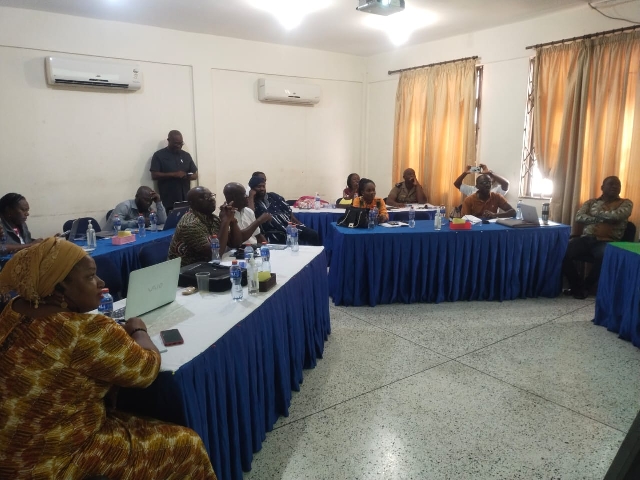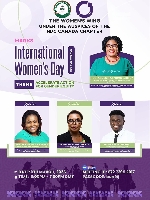Disasters: Call for State of Emergency when you’re overwhelmed – NADMO to DMCs
 Participants at the debriefing after the simulation exercise
Participants at the debriefing after the simulation exercise
The National Disaster Management Organisation (NADMO) has advised officers on the Disaster Management Committee (DMCs) at Metropolitan, Municipal and District Assemblies (MMDAs) to recommend declaring a State of Emergency to their Chief Executives when overwhelmed by disasters and resources are depleted.
NADMO emphasises that this will enable affected areas to receive external resources to save lives and property.
During a debriefing to conclude a 21-day simulation exercise for stakeholders from the Korley Klottey Municipal Assembly (KoKMA) and the Accra Metropolitan Assembly (AMA), supported by the United Nations Development Programme (UNDP) through its Insurance and Risk Finance Facility (IRFF) held in the Central Region, Mr. Richard Amo Yartey, Director of Inspectorate at NADMO, urged officers to continually educate their communities on safe havens and emergency response.
Mr. Yartey highlighted the importance of rapid assessment, search, and rescue during emergencies.
He stressed the urgency of calling for support and validating available data is paramount in disaster management.
He also emphasised the need to set up Emergency Operation Centres (EOCs) at national, regional, district, and community levels.
He explained that the structure of EOCs includes the Director General, head of response, directors of operations, relevant agencies, communication units, and regional and district EOCs.
At the district level, the Chief Executive Officer chairs the committee, with the NADMO officer serving as the Secretary and advisor on disaster risk management.
Mr. Yartey clarified that NADMO officers are not mere rapporteurs on the committee.
He stressed that EOCs are essential and that these committees should meet every three months to assess their preparedness for emergencies.
Currently, NADMO operates 10 EOCs in the ten old regions, with eleven pilot centres across the country.
Ms Amina Sammo, the UNDP’s IRFF Representative, remarked that the exercise represents a significant step forward in the collective journey towards resilience.
She emphasised that the contingency plan developed is a key component of the strategy to mitigate the impacts of disasters and called on participants to create an enabling environment for capacity-building.
She believed this would foster smooth integration into the National Financing Frameworks.
Madam Charlotte Norman, Director of Strategy and Disaster Reduction, thanked the facilitators for their efforts.
She noted that the rationale behind the simulation exercises was to monitor hazards ahead of time, enabling NADMO and relevant agencies to make strategic decisions when disasters occur.
Source: Classfmonline.com/Cecil Mensah
Trending News

E/R: Boso traditional leaders accuse Eastern Reg. Police Commander of meddling in chieftaincy dispute
13:02
W/R: Gov't requires $9 million to complete Bokoro Agenda 111 hospital
15:26
Minority calls on Majority to step up: 'Marshal your members to advance gov't business'
15:07
DR. Heodoafia assumes office as Executive Secretary of IMCCoD
14:53
WN/R: Five Killed in violent clash between rival illegal loggers in Sefwi Agyemadiem
12:18
President Mahama pledges to ease ECOWAS-Sahel tensions
15:11
Ho municipal police to crack down on drug abuse among youth
13:53
Regional Sanitation Day: AMA cleans Nkrumah Memorial Park, Rawlings Park, others
12:18
Energy Minister gives reason for recent power outages in Ashanti Region
11:59
NDC Canada chapter Women's Wing marks IWD2025 with virtual celebrations
14:15




